- Home
- Tim Lebbon
Predator: Incursion Page 11
Predator: Incursion Read online
Page 11
“Better places to hide.” Rogers jogged over toward the tanks, and Isa let him go. Her focus was on the woman.
“Angela, it’s me, Isa. Everything’s okay. You’re safe, there’s nothing to worry about, so why don’t we all—”
Svenlap ran. Considering her physical condition, her speed was surprising, and she ran with a spidery gait that dragged her shadow scampering behind her. Isa glanced across at Rogers, then gave chase. Svenlap was heading for the far corner of the garage, where another doorway led to an unused staircase leading up into the ruined sector of the base.
“Svenlap!” Rogers called.
Palant turned and saw him running toward her. He looked very serious, and his side weapon was drawn. As he drew alongside her he slowed, but did not stop. “She’s been doing something,” he said, passing her. Palant ran after him.
As Rogers approached, Svenlap changed direction, disappearing behind the rover and out into the blasting storm.
“Wait!” Rogers shouted.
“Rogers, what is it?” Isa said. She was keeping up with him, but her lungs were burning and her legs aching. She should have paid more attention to her fitness. She should pay more attention to everything, and not let her work consume her. Rogers had been trying to tell her that for months, sometimes to her face, and more often with subtle suggestion.
“She’s planted something by the fuel tanks,” he said. “A device. I can’t see exactly what. And she’s been missing for some time.”
They passed out from the safety of the garage and into the storm. Rogers tried shouting something into the comms band on his wrist, but she didn’t know whether he was successful. Her senses were battered—blasting wind abrading her skin, ears clogged with grit, eyes stinging, sand grinding between her teeth and the taste of sulphur on her tongue. She attempted to keep up with him, but he soon drew ahead of her, and past him she could just make out Svenlap’s shadow sprinting directly away from the base.
Then Svenlap stopped.
“Put it down!” she heard Rogers shouting. “Svenlap, slowly, put it down, and we can talk and—”
Svenlap’s voice cut in, surprisingly loud in the storm, as if carried by the airborne grit.
“I will illuminate their way.”
Rogers shouted something else. Isa never knew what it was, because a booming blast erupted behind her, the landscape glared alight as if by a lightning strike, and a hot fist smashed into her back, lifted and carried her forward, melting her into the air.
Something solid flipped past her and struck Rogers, and it was strange, she couldn’t quite understand what happened, but where he had been one now he was two, a small part of him bouncing across the hard ground, the larger part falling flat.
Beyond, Svenlap was spreadeagled on her back with flames rising from her hair.
Palant struck the ground hard. Light gave way to dark and everything went away.
* * *
Get up, it’s only a graze, she heard her father say. He was looking down at her, smiling his kindly smile and holding out his hand, but behind the smile was the impatience that had always been there. He loved his wife and daughter, Isa was certain of that, but he loved his work more.
But it hurts, she thought. My back hurts, and my head, and my legs where they were scraped across the ground when the explosion…
Her father vanished into smoke, and his final whispered words were roars of flame, the pained squeals of crumpling metal structures, the dull thump of more distant detonations.
Palant was lying on her side, left arm trapped beneath her. She rolled onto her back, clenched both fists, tensed and turned her feet, ready for agony but relieved when there was only intense discomfort. Cuts and lacerations, but no broken bones, at least.
“Rogers,” she whispered, words stolen by the destruction.
The sky was on fire.
Almost a mile away, the first of the processor towers seemed to be alight, but it was only the dull, damp metal framing reflecting flames from closer by. She had never seen the towers so clearly, even during days when the storms were reduced to blustery gusts and showers. It was almost beautiful.
Closer, more horrific, so confusing that it took her a while to understand, and longer still to believe, Love Grove Base was burning.
Someone shouted, voice rising into a scream. It sounded agonized, but quickly broke into a high, staccato laugh.
Palant sat up, rolled onto her side, stood. Her knees were shredded and bleeding, filled with grit and stinging. Her gloveless hands were similarly slashed, but she could work her fingers, and closing her eyes she tried to balance herself, get her bearings so that—
Rogers!
The scream had not come from him, she was sure.
Palant opened her eyes again and turned around, looking away from the burning base. Her shadow was cast before her, long and twitchy, and within its lengthy grasp stood Svenlap. The hair was burnt from her scalp, one eye swollen, blackened and closed. Her mouth hung open and emitted a continuous laugh, rising and falling as she drew air into scorched lungs, again and again.
“What have you done?” Palant tried to shout, but she had no voice.
Between her and the still-smoking Svenlap, Rogers lay on the ground. His head was gone, sheared off by the flying debris, and Isa stepped forward and started looking for it.
It’s over here somewhere, I saw it come off and bounce away and if I can only… Her thoughts trailed off and she sobbed once, loud and shuddering. Her lungs ached. She drew in a big breath and coughed, then shouted.
“What have you done?”
Svenlap drew a gun from her jacket pocket. It was a squat, ugly thing, and Isa recognized it as an indie sidearm. A laser pistol. Rogers had let her fire his once, and she’d sliced a rock in two at one hundred paces.
She had nowhere to run.
The weapon was not intended for her.
With a loud hiss and a flare of white light, Svenlap pressed the barrel beneath her chin and laser-blasted her head into a red mist.
Palant turned away and crouched down, and when she lifted her head again she saw what had become of her home.
Distant screams punctured the air. Tortured metal or dying people, she did not know.
The place where the subterranean garage had been was now a volcanic pit of boiling flame, smoke, and intermittent explosions, the building structure slumped down all around as if sucked into the fiery hollow. The fires reached further afield, wavering fingers reaching for the sky and being flitted away by the strong winds. Flames spread. Other explosions might have occurred, or perhaps the conflagration had spread rapidly, flowing with the spilled and burning fuel from the tanks.
Shock was waiting to take her down, but buffering her against that was the knowledge that so many people would need her help. If anyone else had survived.
She stood and skirted around to the south of the base. It was all single story, with a few areas like the garage buried deeper in the ground, and escape should have been easy. Yet the further she went without seeing anyone else, the more terrified she became. There were almost a hundred people on the base, mostly scientists from the ArmoTech division and indies that they’d hired themselves when the Company suggested that a Colonial Marine presence would not be required. A few kids lived there, too, belonging to researchers who couldn’t bear to be away from their families. In the beginning Palant had resented their presence, but then as the children grew older, she’d started to look at them with a gentle yearning.
Now, she felt so alone. Heat radiated from the burning base and aggravated the burns on her exposed skin, but her back faced the desolate landscape of LV-1529, the world they had never bothered naming. It was cold.
“Anyone!” she shouted. Her voice was weak against the blasting wind, the growling flames. Fires danced across the base, whipped by the storm. The stink of melting plastics and hot metals reached her, and something else.
Cooking meat.
She thought of the dead Yautja in her labs, and a rush o
f panic grabbed her. Then she felt ashamed when she remembered Rogers dropping down, his head bouncing away. Her research was stored in local data clouds and her personal quantum storage fold, but Rogers was gone forever.
Him and many more.
“Anyone!” she shouted again, and from somewhere a voice replied.
Palant ran, skirting around the edges of the base. She clambered over rocks, stepped across a rough track cut into the land by repeated rover missions, and circled toward the east wing. This part of the base was dilapidated and unused, and it appeared that Svenlap had not felt the need to plant any devices here. From one facade tumbled long ago, a line of people staggered out into the inimical landscape.
Isa ran to them, recognizing a few indies and some of the base support staff. As she approached a sense of panic gripped her, because she didn’t know who she was looking for. My only friend is dead, she thought, and although that was not quite true—because she mixed socially with most people on the base—Rogers’s loss bit in deep.
The people were confused, some injured, but the indies were reacting well to the crisis, making sure they all stayed together and moved away from the blazing buildings. A dull explosion thumped through the ground, and a swirling tower of flame and smoke rose above the north wing. This was the largest part of the expanded base, and home to Palant’s labs.
“Isa!” someone shouted. Milt McIlveen approached, and she surprised herself when tears threatened. He was a Company man, yes, but they’d grown friendly in the short time they had been working together. He had his orders, but he was very open about them. Now he looked lost and terrified. As he stood before her, blinking rapidly, she wiped her eyes and took him into her embrace.
“What happened?” he asked, his cheek against hers.
“Sabotage,” she said. “Come on. We’ve got to get away until the fire’s out, then see what’s left.”
“Life support is gone,” he said. “I heard someone say that as we came out.”
Fear stroked Palant’s heart.
“Control’s gone, too,” McIlveen continued, “and the main comms center, and no one knows about the landing pad.”
“Don’t worry about all that right now,” Palant said. “Let’s think about today. Tomorrow can look after itself.”
One of the indie sergeants approached her. “Rogers?” he asked.
“He’s dead,” Palant said. “It was Svenlap. We found her in the garage. She must have been living rough, building and planting devices, and when we chased her outside she detonated the bombs.”
Her words caught the attention of the other survivors.
“Let’s move away from here,” the sergeant said. “Everyone in twos, hold each other’s hands, follow in a line!”
“Where to?” Palant asked.
“For now, the processors,” he said. “It’s too dangerous to stay here. Automated firefighting systems are down. Life support’s fucked, and once these flames die down it’ll hit zero pretty damn quick out here. Love Grove Base is finished.”
“There’s nowhere we can survive long-term beneath the processor towers,” she said.
“I’m not thinking long-term,” the sergeant said. “Just until tomorrow. You all get to the processors, me and my team will stay here and look for survivors.”
Palant looked around. There were maybe fifteen people there, half of them indies. There must have been more survivors. There had to be.
“I’m staying, too.”
“Isa—”
“I’m staying, Sergeant!”
“Me, too,” McIlveen said, and Palant felt a rush of affection for him. He was shocked, terrified, but he didn’t want to run.
As it turned out, nobody wanted to run.
* * *
They looked for survivors. As the flames raged, fanned by the winds and fed by fuel inside the base—oxygen tanks, chemical storage rooms, food stores—the survivors were split into teams and led on a series of search-and-rescue missions.
Palant and McIlveen were on one team, along with the indie sergeant and a couple of the base’s technical and support staff. The techies carried key cards to every door, and knew override codes for almost every area of the base, so they took the lead, but much of the sprawling structure was already destroyed by explosions and the resulting firestorm. Although five teams searched for a long time, they found very few people to rescue.
They saw lots of bodies. Some of them they dragged outside. Others they could not drag.
At the back of Palant’s mind was the possibility of finding her way to her labs, but it soon became clear that the whole north wing was an inferno, roof collapsed and purple flames roaring from its heart where the fire had found a chemical store. They donned face-masks, but could not draw too close. The flames rose into an indigo glow that was shredded by the wind.
* * *
After several hours they regrouped beyond the ruined east wing. There were twenty people, including two kids who had both lost their parents. Everyone was wide-eyed and shocked—even the indies.
Some of them had been in bed when the first explosion engulfed the garage fuel tanks. Others had been working, a young couple had been drinking in the rec room, and one of the children was still wearing a VR suit. Everything had changed in the blink of an eye, and now that their artificial environment of false safety was gone, the cool indifference of their surroundings was starting to freeze their bones. The cold set the rictus of loss in their expressions.
Three survivors were badly burned. The indies gave them all a heavy dose of phrail to block the pain, and they sat huddled together sheltered from the wind behind a rock, wounds covered with bio-gel, goggles failing to hide their fear.
“Processor?” Palant asked.
“It’s our safest bet for now,” the sergeant said. His name was Sharp. There were rumors he’d once killed four men in a knife fight, back when he was a kid. He’d been burned during a rescue, the dark skin of his cheek and jaw now glowing with bio-gel.
“What about the landing pad?” The landing pad was north of the first processor, just over a mile from the base and out of sight in a shallow valley.
“Can’t get any signal from there,” Sharp said. “Only McMahon had time to get her combat suit on, and it’s registering nothing. That’s a problem for later. Once we get to the network beneath the processor, I’ll send two of my people to see what’s there.”
“You think she might have blown the Pegasus?”
Sharp shrugged. “Depends on what her reasons were.”
To Palant, the idea of Svenlap meaning them harm was indecipherable.
“If the Pegasus has gone?”
“Then we’ll have to arrange a rescue.”
“With no comms room?”
He held her arm, and she realized her voice had been rising. For some reason the other survivors were looking to her. Perhaps because she had been here longer than anyone else, or maybe because she was the senior scientist here. “Yautja Woman,” some of them called her behind her back, echoing Rogers’ nickname for her, though not always with affection.
“There’s always a way,” he said.
Palant nodded, and even managed a smile.
As they walked away from the burning base and toward the foot of the nearest atmosphere processor, helping the wounded and each other, the storm came in harder than ever. Rogers’s body was likely already buried beneath the dust.
10
JOHNNY MAINS
Arrow-class vessel Ochse
Near Yautja Habitat designated UMF 12, beyond Outer Rim
July 2692 AD
They were going to crash, and they were going to die. But not without a fight.
Frodo had successfully sealed the hull breach and settled the Ochse’s atmosphere imbalance, and three seconds later the protective foam layers the ship had sprayed around each surviving VoidLark had melted away. The ship was a mess.
The Yautja vessel, Bastard One, had straddled the hull with a spray-burst of laser fire, an
d the Ochse shuddered and shook as Frodo tried to settle their spin. Parts of McVicar’s body drifted around the cabin, bumping from bulkheads and control units. Faulkner brushed his torso aside and spat a gob of blood away. His eyes remained focused on his combat screens.
“Bastard One down!” he said. “Mini-nuke got through.”
“Thank fuck for that,” Cotronis said.
“Status,” Mains asked. Frodo answered, having already assessed all systems, both functional and damaged.
“Weapons fully online, life support seventy-seven percent, but I can hold that steady for a while. Hull breached in seventeen places. I’ve sealed them all but there’s still venting from somewhere. Attempting to locate. The drive shielding is damaged. Reactor compromised.”
Oh, fuck, Mains thought. “Repairable?” he asked.
“Possibly, but remote systems in the engine compartment are smashed,” Frodo said. “Sorry.”
“I’ll go,” Cotronis said.
“Sara—”
“L-T, I’m the most qualified, and I’m all suited up. No problem.” She was already unstrapped and pulling herself across the flight deck, knocking McVicar’s drifting body aside. The air was speckled with bubbles of his blood and fluids, colliding and growing, splashing against objects and people. None of them could bear to mention the loss just yet. They were in combat, and introspection was a waste of time and effort.
Mains glanced over at McVicar’s comms station. A laser blast had punched through the unit and sliced the chair in two. If there was anything salvageable there, it would have to wait until later.
“There’s only one thing we can do,” Lieder said.
“The habitat,” Snowdon said.
Mains was glad they were all thinking it already. “You’re about to get your opportunity to meet these fuckers that fascinate you so much, Snowdon,” he said.
“I’d really rather not.”
“Lieder, plot me a course. Faulkner, enemy status?”
“Bastards Five, Six, and Seven standing off.”
“Waiting for the kill?” Snowdon asked.
“Frodo, what do we look like?”

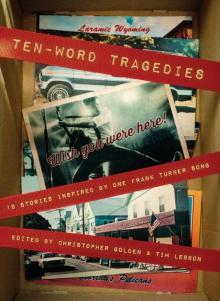 Ten-Word Tragedies
Ten-Word Tragedies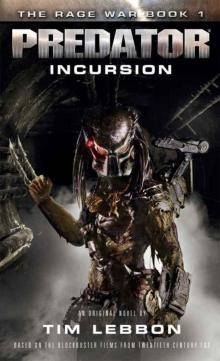 Predator: Incursion
Predator: Incursion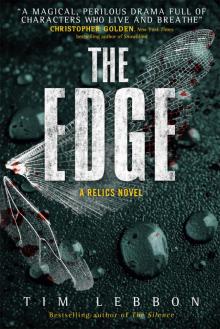 Relics--The Edge
Relics--The Edge Firefly
Firefly Face
Face Generations
Generations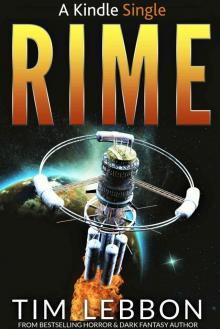 RIME (Kindle Single)
RIME (Kindle Single) Fallen
Fallen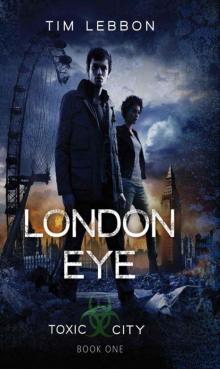 London Eye tc-1
London Eye tc-1 Kong: Skull Island
Kong: Skull Island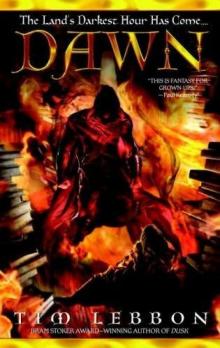 Dawn n-2
Dawn n-2 Into the Void: Star Wars (Dawn of the Jedi)
Into the Void: Star Wars (Dawn of the Jedi) The Everlasting
The Everlasting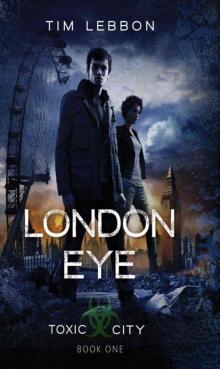 London Eye: 1 (Toxic City)
London Eye: 1 (Toxic City) Dusk: a dark fantasy novel (A Noreela novel)
Dusk: a dark fantasy novel (A Noreela novel) Coldbrook
Coldbrook Alien
Alien Dusk
Dusk The Cabin in the Woods
The Cabin in the Woods The Heretic Land
The Heretic Land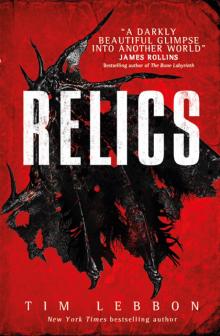 Relics
Relics The Nature of Balance
The Nature of Balance Echo City
Echo City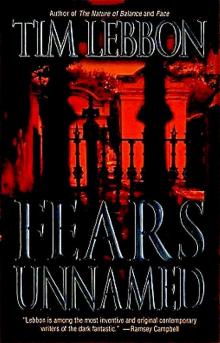 Tim Lebbon - Fears Unnamed
Tim Lebbon - Fears Unnamed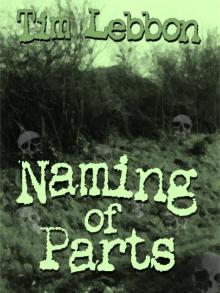 Naming of Parts
Naming of Parts Alien--Invasion
Alien--Invasion Vale of Blood Roses
Vale of Blood Roses Berserk
Berserk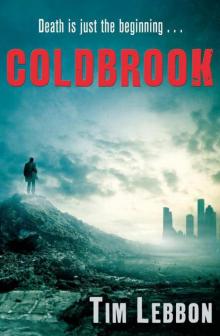 Coldbrook (Hammer)
Coldbrook (Hammer) Contagion tc-3
Contagion tc-3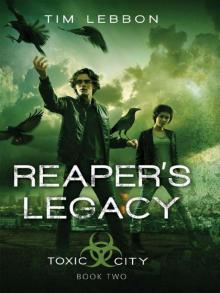 Reaper's Legacy: Book Two (Toxic City)
Reaper's Legacy: Book Two (Toxic City)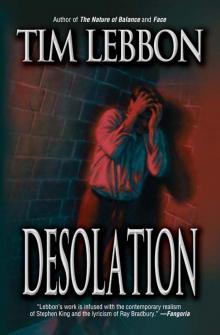 Desolation
Desolation Unnatural Selection
Unnatural Selection Predator - Incursion
Predator - Incursion London Eye
London Eye Contagion (Toxic City Book Three)
Contagion (Toxic City Book Three) The Silence
The Silence The Thief of Broken Toys
The Thief of Broken Toys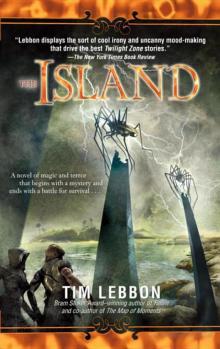 Tales of Noreela 04: The Island
Tales of Noreela 04: The Island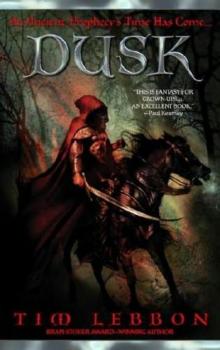 Dusk n-1
Dusk n-1 White and Other Tales of Ruin
White and Other Tales of Ruin A Whisper of Southern Lights
A Whisper of Southern Lights Until She Sleeps
Until She Sleeps Relics--The Folded Land
Relics--The Folded Land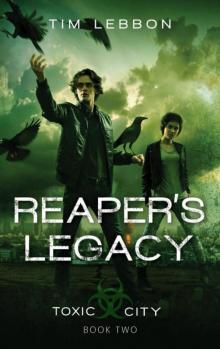 Reaper's Legacy tc-2
Reaper's Legacy tc-2 Alien: Out of the Shadows
Alien: Out of the Shadows Pieces of Hate
Pieces of Hate X-Files: Trust No One
X-Files: Trust No One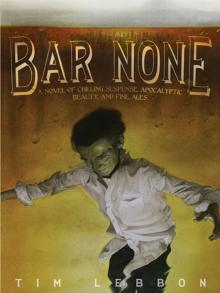 Bar None
Bar None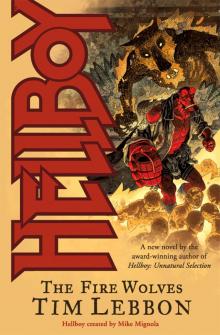 The Fire Wolves
The Fire Wolves